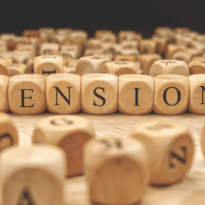Nearly three million households who suffered a dip in income due to the Covid19 pandemic, including the self-employed, have been left without financial support from the government, a new report from the Standard Life Association has revealed.
Of those households who did not benefit from the Government’s furlough or self-employment income support schemes, 90% did not receive Universal Credit either.
The foundation, chaired by former Chancellor Alistair Darling, said there were several reasons why employees had failed to be covered by the furlough scheme, including job loss, reduced hours or pay, and the failure for new employees to be added to the payroll prior to the March 19 cut-off date.
Concerningly, the findings suggested the outlook for this group was “fairly bleak”, with two thirds (65%) thinking it is likely they will suffer a further loss of income over the next three months and 39% thinking it very likely.
Self-employment was a key factor for the high numbers, the study found, accounting for 41% of households in this group, while 19% worked in the gig economy prior to lockdown.
Households that had their income protected by Government schemes were also likely to face increased hardship, the foundation said, with two million “very likely” to suffer further income losses in the next few months, with one million admitting it was very likely they would experience job loss or have to cease trading and a further million expecting to experience a drop in earnings.
The Standard Life Foundation has called upon the government to “fix the broken safety net” to stop more people falling into financial difficulty.
Mubin Haq, chief executive, Standard Life Foundation, said: “It is commendable that the government acted quickly to protect millions of household incomes at the start of the pandemic. However, many more people than previously estimated are falling through the cracks, and this number is likely to grow if redundancies increase once the employer contribution to the furlough scheme begins in August.
“Now is the time to fix the broken safety net to prevent more households falling into hardship. We are calling on the Government to iron out some of the hard edges to its policies and fill in the gaps. In particular support for the newly self-employed and addressing eligibility rules in relation to income and trading thresholds.”
Alistair Darling, chair, Standard Life Foundation, added: “Some of the families who have not been protected will be able to rely on savings but many are already struggling to pay for essentials such as food. Given that we have a looming jobs crisis and four in ten have savings of less than £500, the report makes for worrying reading.
“As the job retention schemes end there is a real risk of 1980s levels of unemployment with millions facing a dramatic loss of income. The Government must put in place measures to get people back into work and to support families who will desperately need support. We need to prepare now.”






























